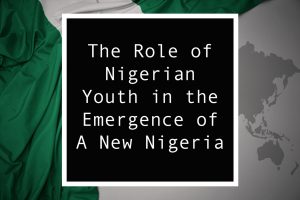The Nobel Prizes are awarded annually to recognize outstanding contributions in various fields. Such as literature, natural, medical, and social sciences, serve as a global benchmark for scientific excellence. However, it’s no secret that in recent years, the list of laureates has been conspicuously devoid of African names, particularly in the sciences. This dearth of African Nobel Laureates Prize winners in the sciences raises important questions about the state of experimental research and development in the continent.
As such it is important to examine the factors contributing to this gap and outline strategic ways to improve the situation.
Understanding the discrepancy
As of October 2023, Nobel Prizes had been awarded to 965 individuals, of whom only 17 were Black recipients which covers about 1.7 percent of the 965 individual recipients. Of course, Black doesn’t mean African, and this further reduces the sector covered by black Africans. Also, the black African Nobel recipients are concentrated in Peace and Literature. With the single black recipient in Economic Sciences W. Arthur Lewis a North American from Saint Lucia.
The plot widens to indicate that, not only have black Africans not received any awards in sciences, but no black person has insofar been a recipient of the prize in the natural (Physics and Chemistry) and medical (Physiology or Medicine) sciences, since its founding in 1901 (122 years ago).
Worthy of note is the fact that Africans have received awards in the sciences. However, the awards have either gone to white Africans or Caucasians who were only born in Africa and later went on to claim citizenships of other continents, as can be seen in this African Nobel Laureates list.
Max Theiler, a white African, received the prize in 1951 for Physiology or Medicine, making him the pioneering winner in the sciences. The most recent recipient, Abdulrazak Gurnah, was awarded the Nobel Prize for Literature in 2021.

The underrepresentation of African scientists in Nobel Prize laureates can be attributed to several interrelated factors which include:
1. Funding constraints
Adequate funding is the lifeblood of scientific research. Unfortunately, many African countries struggle to allocate sufficient resources to research and development. This limits the ability of African scientists to conduct groundbreaking experiments and investigations.
Most recently, the Committee of Vice-Chancellors of Nigerian Universities (CVCNU) established that Nigerian scholars are usually overlooked because of poor research funding. “To win a Nobel Prize is a product of sustained and rigorous research in the academic discipline, it is not a one-off thing,” said Professor Yakubu Ochefu, Secretary-General of the committee.
“It looks surprising that the average age for a Nobel Prize winner is from 50 years. It means that the person would have been doing research for at least 10 years to make a major breakthrough in his area of specialization.
“We [Nigeria] do not have enough funding for research in this country, there is a correlation between the quantum of resources available for research and the development of every country.
“And the benchmark is at least one percent of your Gross Domestic Product (GDP) should be set aside for research and innovation, we are not even doing 0.1 percent,” he lamented.
2. Infrastructure deficiencies
According to a paper by the Global Education Monitoring Report at UNESCO, lower and middle-income countries (which most African countries fall into) are experiencing a significant financial deficit. And they need $97 billion per year to achieve their national Sustainable Development Goals Four (SDG4) education targets for 2030.
To put Nigeria as a case study. The most populous African country has allocated about 12 percent of its annual budget and 2 percent of gross domestic product (GDP) on average to education in the last couple of years. This is below the 15 percent of annual budget and 4 percent of GDP budgetary allocation among African peers.
State-of-the-art laboratories and research facilities are essential for conducting cutting-edge experiments. However, Africa faces a significant infrastructure deficit in this regard, hindering the pursuit of experimental research.
3. Educational challenges
Uneven access to quality education in STEM (Science, Technology, Engineering, and Mathematics) fields restricts the development of a skilled scientific workforce. This educational gap limits the number of scientists capable of conducting Nobel-worthy research.
4. Brain drain
Many promising African scientists seek opportunities abroad due to limited prospects at home. This brain drain deprives the continent of talent and expertise that could contribute to groundbreaking research.
In Nigeria, for example, the brain drain (popularly called ‘Japa Syndrome’) has not only attracted young people, but universities are also lamenting the mass exodus of lecturers.
Strategic ways to improve the situation
Addressing the dearth of experimental research and development in African natural and social sciences requires a multifaceted approach. Here are some strategic solutions:
1. Investment in research
African governments and international organizations should prioritize investment in research and development. Increasing funding for scientific projects will enable African scientists to conduct meaningful experiments and contribute to global knowledge.
2. Infrastructure development
The establishment of modern research facilities and laboratories should be a priority. Collaborations with international institutions can help bridge the infrastructure gap and provide African scientists with the tools they need to excel. The Tertiary Education Trust Fund (TETFund) can fill this vacuum through strategic positioning for international grants.
3. STEM education reform
Revamping STEM education is essential. This includes improving the quality of teaching, expanding access to STEM programs, and fostering a culture of scientific inquiry from an early age.
4. Promoting collaboration
There is a need for increased global partnership in higher education systems. Encouraging collaboration between African and international scientists can facilitate knowledge exchange and open doors to research opportunities. Joint projects can help African scientists gain exposure to cutting-edge methodologies. Collaborations with established research institutions and universities worldwide can provide African scientists with mentorship and access to resources. These partnerships can lead to breakthroughs in research.
In recent times, donor countries’ budgets have witnessed a significant stagnation of financial aid. At the same time, education is receiving a falling share of what aid is available. Around a third of the financing gap could be filled if donors fulfilled their aid commitments and prioritized basic education in the poorest countries.
5. Incentivizing Innovation
African governments can introduce incentives such as research grants, awards, and recognition for outstanding scientific achievements. These incentives can motivate scientists to pursue ambitious research agendas.
6. Reducing brain drain
Creating an environment conducive to research and innovation can encourage African scientists to stay in their home countries.
In addition, offering competitive salaries, career development opportunities, and a supportive research ecosystem can help retain talent.
7. Public awareness and advocacy
Raising public awareness about the importance of scientific research and its impact on society can garner support for increased funding and resources. Advocacy efforts can help policymakers understand the value of science.
Final thoughts
The absence of African Nobel Prize laureates in the sciences is a symptom of systemic challenges facing the continent. However, it is crucial to recognize that African scientists possess immense potential and talent. By addressing funding constraints, improving infrastructure, reforming education, and fostering a culture of innovation, Africa can close the gap in experimental research and development.
Strategic investments and collaborations, combined with a commitment to nurturing homegrown scientific talent, can pave the way for African scientists to make groundbreaking contributions on the global stage. The pursuit of excellence in research is not limited by geography. And Africa has the potential to become a powerhouse in the sciences. It is a journey that requires dedication, resources, and international support, but the rewards for Africa and the world are immeasurable.







